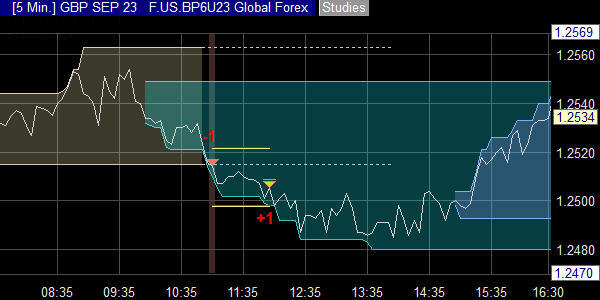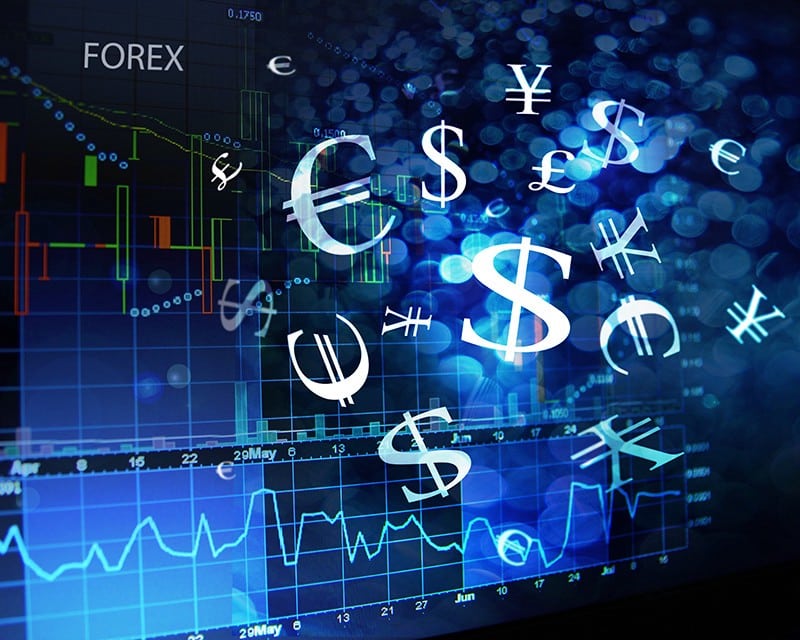Recommended News To Selecting Forex Trading Sites
Wiki Article
Top 10 Tips For Choosing An Fx Broker To Trade Online
The best Forex broker can directly impact your trading experience, safety and performance. Here are 10 essential suggestions for selecting the right Forex broker.
Verify the status of your regulatory agency and its reputation.
1. You should only work with brokers that are regulated by credible agencies like the U.S. CFTC or UK FCA. Regulation makes sure that brokers are following the industry's guidelines. Also, it protects your funds and guarantees that fair trade practices are followed. Avoid brokers that aren't regulated or who have a history with complaints.
2. Evaluate the trading Costs (Spreads and Commissions)
Brokers make money through spreads (the difference between the buy and sell prices) or commissions. Find brokers that have transparent and affordable charges. You may find that a broker that has low spreads is more affordable for you if you trade regularly. Beware of hidden fees such as withdrawal costs or a fee for inactivity.
3. You can select from a wide range of options for currency pairs
Check that your broker offers the major currency pairs (such as EUR/USD) as well as minor or exotic currencies pairs in the event that they are compatible with your strategy for trading. A greater selection of currency pairs lets you diversify and trade according to market opportunities.
4. Trading Platform and Tools - Examined
The platform for trading is where you exchange information with the market. So it must be simple to use, reliable, and have tools that fit your trading style. Many brokers provide platforms such as MetaTrader 4 (MT4) or MetaTrader 5(MT5). They may also offer proprietary software. Before you decide to invest, make sure that you try out every feature on the platform. This includes charting tools as well as indicators and speed of order execution.
5. Review the types of accounts and options for leverage
Brokers have a wide range of account types that vary in the terms of leverage, spreads and minimum deposit. Select a broker that has the type of account that best suits your budget, type of trading, and the level. Be wary of brokers that offer very high leverage as they could increase the chance of huge losses, particularly if you're a beginner.
Review your withdrawal and deposit options
Find out the deposit and withdrawal methods along with processing times, as well as fees associated with them. A good broker offers secure, convenient and cost-effective methods like bank transfers and credit card transactions or trusted e-wallets such as copyright or Skrill. Beware of brokers that have lengthy processing times, or with high charges for withdrawals.
7. Test Customer Support Responsiveness
A reliable customer support team is vital, particularly when it comes to urgent issues, such as withdrawal problems and platform malfunctions. Contact the broker through various ways (live chats, email, or telephones) to assess their competence and expertise. Search for brokers offering 24/7 customer support in the event that your transaction is not during normal office hours.
8. Security Measures and Fund Protection
A reputable broker will ensure that your funds secure. Check if a broker offers negative account protection in order to stop you from losing any additional funds than your current balance. These measures will protect you in the event of insolvency for the broker and market volatility.
9. Search for resources that will help you learn and develop as a newbie.
A good broker will provide you with educational materials including webinars as well as trading guides, market analysis, as well as demo accounts. These resources can be invaluable, especially if you're new to Forex trading or are looking to refine your skills. Demo accounts let you practice without the risk of losing any real money. It's a great method to gain experience.
10. Read Independent Reviews or Ask for recommendations
Reviews can help you understand the strengths and weaknesses of a broker and hidden costs. Review reviews on trusted forums, trading communities and review websites, but stay cautious of fake reviews or excessively promotional comments. You can also use the suggestions of experts in trading.
The right Forex broker is a careful assessment of several factors. Transparency, regulatory compliance and trading conditions should be prioritized in order to identify a broker who can meet your requirements while allowing traders to trade easily and securely. Read the top https://th.roboforex.com/ for more advice including best rated forex brokers, forex market online, best forex trading broker, forex trading, forex trading brokers list, forex trading trading, currency trading demo account, recommended brokers forex, brokers for forex in usa, forex best trading app and more.

Ten Tips For A Successful Forex Trader When Using Technical And Fundamental Analysis
Fundamental Analysis and Technical Analysis play a crucial role in Forex trading. You'll be able to make informed and strategically sound choices when you're proficient in both. Here are 10 top suggestions on how to utilize the fundamental and technical aspects of analysis when it comes to online Forex trading.
1. Learn about the major levels of support and resistance.
Support and resistance zones are price zones where currency pair often pauses or reverses. These levels act as psychological stumbling blocks, making them vital for planning entries and exits. These zones can be used to determine the point at which prices could be able to reverse or break out.
2. Multi-timeframes offer a an expanded perspective
Examining charts using different timeframes (e.g. daily, 4 hours or 1-hour) can give an insight into trends and the overall picture. The higher timeframes provide a broad picture of the market and lower ones show timing and specific entry points.
3. Master Key Technical Indicators
Moving Averages, Relative Strength Index (RSI), Moving Average Convergence Divergence Divergence(MACD) are the most important indicators when it comes to Forex trading. Learn how each of the indicators works, and then try combining them to increase your understanding.
4. Candlestick patterns: Pay pay attention
Candlestick patterns, such as dojis, hammers, and engulfings patterns can often indicate potential reverses. Make sure you are aware of these patterns in order to identify possible changes in price action. You can enhance your timing through combining candlestick analysis and tools such as support and resistance.
5. Trend analysis can provide directional indications
Use trendlines and moving mean to detect uptrends, downward trends or market movements that are sideways. Following the trend is a common strategy in Forex trading as following the trends usually yields more consistent outcomes. You should avoid counter-trend trading unless your knowledge level is extremely high.
Fundamental Analysis Tips
6. Know Central Bank Policies and Interest Rates
Central banks, including the Federal Reserve Bank or the European Central Bank (ECB), control interest rate that have a direct impact on the value of currency. High interest rates can strengthen currencies, while low rates can weaken them. Keep track of central bank announcements, as they can trigger major market movements.
7. Follow the Economic Indicators and Reports
The most important economic indicators like GDP, unemployment rates, inflation or consumer confidence can provide important insights into the state of economic health of a country, and can impact the value of currencies. To keep up-to-date with the latest announcements, make use of an economic calendar to track the impact of these indicators on your currency pairs.
8. Examine Geopolitical Events and News
Markets for currencies are affected by political events such as negotiations, elections or conflicts. Stay informed about global events and events that impact important economies, like the U.S. and China. Prepare for volatility by adapting your plan to unexpected changes in geopolitics.
Combining Fundamental and Technical Analysis
9. The alignment of technical signals with fundamental Events
Combining the analysis of technical and fundamental analysis can boost the process of making decisions. If, for instance, the technical setup indicates an upward trend and the economic outlook is positive expected, both of these factors could confirm the credibility of a buy signal. By aligning both strategies, you can reduce uncertainty and improves the chance of successful trading.
10. Make use of risk events as trading Opportunities
It is typically caused by significant events like Federal Reserve meetings and non-farm payroll releases (NFP). This could cause rapid price changes. These events are usually avoided by traders because of their unpredictable nature. However if you know what you're doing, you can take advantage of the price swings with the help of the analysis of technical aspects. You must be cautious and put in place tight stop-loss limits.
Forex traders benefit from a deep knowledge of market dynamics by integrating both technical and fundamental analysis. Through mastering these methods, traders can better understand the currency markets, make more strategic decisions, and improve overall performance. View the top rated https://th.roboforex.com/partner-program/ for site examples including forex trading app, forex brokers usa, top forex brokers, forex trading brokers, fx trade, regulated forex brokers, forex trading forex, best broker for currency trading, trading foreign exchange, forex market online and more.

Tips For Trading Forex To Achieve Your Personal And Financial Goals
The setting of clear financial and personal goals is vital to success in Forex trading. The goal that is clearly stated can help you stay focused and focused, while also keeping you on track with the financial objectives you have set. Here are the top 10 ways to manage your personal and financial goals when trading online Forex.
1. Define Your Financial Objectives Clearly
Create the goals you want to achieve for your finances for your finances, such as a return investment percentage or monthly income. Choose whether you are aiming for capital growth, supplemental income, or the preservation of wealth. Having clear objectives helps you determine the best strategies to achieve the goals you want to achieve.
2. Set a Realistic Timeframe
It takes time to master the art of forex trading. Set both short-term and medium-term goals to track your progress and help you avoid stress from unrealistic expectations. You can set an immediate trading strategy as well as a long-term return goal.
3. Determine Your Risk Tolerance
Check your comfort level with risk, and make sure that your objectives are in line with this level. For instance, if you're aiming at high returns, be ready for higher risks and volatility. Understanding your tolerance for risk will allow you to establish realistic goals and choose strategies that are within your comfort level.
4. Plan a Capital Allocation Strategy
Choose the percentage of your total finances you'll invest in Forex trading. Make sure your investment in trading capital is a sum you are able to afford losing without affecting your financial stability. Make sure that your trading capital doesn't interfere with your funds needed for bills or savings.
5. Concentrate on the Development of Skill as a primary goal
Don't solely focus on the financial return. Instead, try to continually improve your trading and knowledge. You can establish skill improvement goals, such as mastering certain trading strategies and improving your risk management abilities, or learning how to manage your emotions when under pressure. Skills become more powerful as time passes and result in more effective results.
6. Prioritize Consistency Over Large Wins
Beginning traders often seek to make big profits fast However, traders who have experience are aware that steady, regular gains are more reliable. Set a goal for an appropriate percentage of gain every month. You can build a better performance by focusing on a consistent increase in returns.
7. Commit to Tracking and Reviewing Your Performance on a regular basis.
Establish a goal of maintaining a trading log in which you track every trade, evaluate the outcomes and reflect on lessons learned. You can alter your strategies, improve your approach, and stay accountable by examining your results on a quarterly or monthly basis.
8. Set psychological and behavioral goals
Trading is a process that requires both mental and emotional control. Establish goals that are based on the psychological aspects like limiting impulsive trading, sticking to a strategy or decreasing the desire to trade revenge. These goals can help you to develop a disciplined and resilient approach.
9. Beware of comparison with others
Forex trading is a private experience, and comparing yourself to other traders' results could lead to unwise or risky choices. Set your goals based solely on your own personal growth and financial abilities and not on the performance of others. Concentrate on improving your performance gradually rather than being competitive with other traders.
10. Determine an Exit Strategy or Financial Milestone
Set yourself a target whereby you either end trading for a short period, take profits from your account, or examine your performance. If you hit a certain profit goal, you could take some of your gains and put them into reinvestment or enjoyment. If you set an "take profit" date, you will be able to stay clear of overtrading, while appreciating your achievements.
Set and manage clearly defined goals for your personal and financial trading can help you to improve your discipline and reduce stress. They will also help you towards achieving lasting achievement. Be sure to adjust your goals according to your growth, while focusing on consistency, personal accountability, and continual improvements. Read the recommended https://th.roboforex.com/about/activity/awards/ for site tips including forex demo account, forex brokers list, fx trading forex, regulated forex brokers, fx trade, broker cfd, best currency trading app, platform for trading forex, forex demo account, forex brokers usa and more.
